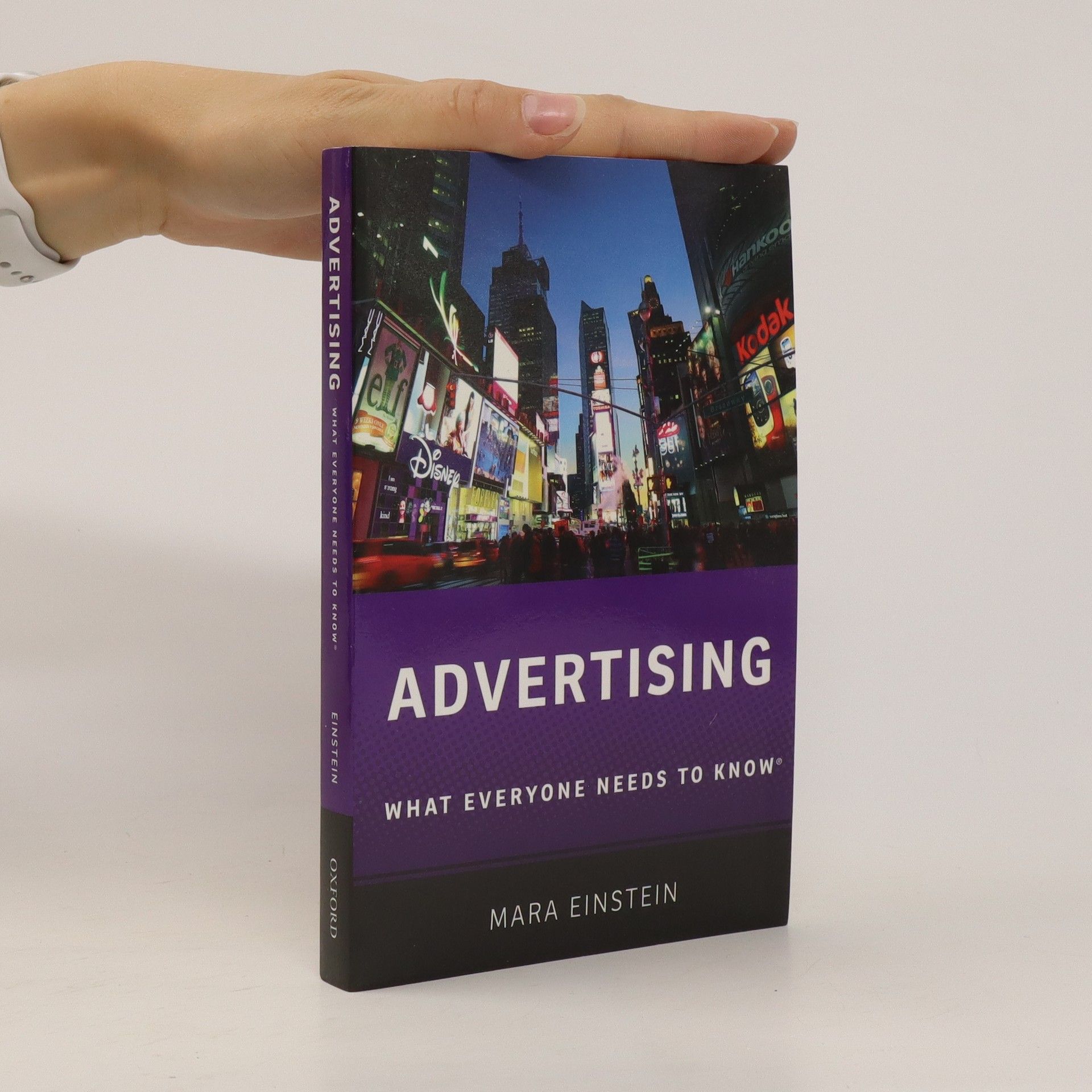Advertising: What Everyone Needs to Know
- 229 Seiten
- 9 Lesestunden
3000. That's the number of marketing messages the average American confronts on a daily basis from TV commercials, magazine and newspaper print ads, radio commercials, pop-up ads on gaming apps, pre-roll ads on YouTube videos, and native advertising on mobile news apps. These commercial messages are so pervasive that we cannot help but be affected by perpetual come-ons to keeping buying. Over the last decade, advertising has become more devious, more digital, and more deceptive, with an increasing number of ads designed to appear to the untrained eye to be editorial content. It's easy to see why. As we have become smarter at avoiding ads, advertisers have become smarter about disguising them. Mara Einstein exposes how our shopping, political, and even dating preferences are unwittingly formed by brand images and the mythologies embedded in them. Advertising: What Everyone Needs to Know(R) helps us combat the effects of manipulative advertising and enables the reader to understand how marketing industries work in the digital age, particularly in their uses and abuses of "Big Data.' Most importantly, it awakens us to advertising's subtle and not-so-subtle impact on our lives--both as individuals and as a global society. What ideas and information are being communicated to us--and to what end?
